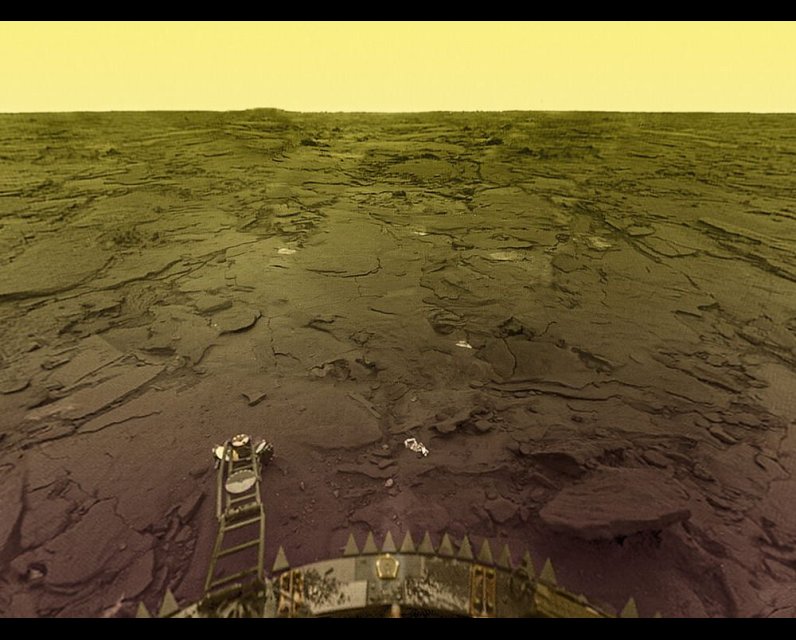Source Feed: National Post
Author: Chris Knight
Publication Date: May 8, 2025 - 06:00
Soviet space probe might hit Canada after 53 years of trying to reach Venus
May 8, 2025

Look up. A Soviet space probe that has been trying to get to Venus for the past 53 years is about to give up and plummet back to Earth any day now. There’s no telling where it could land.
Kosmos 482, to give the careening craft its official name, was launched from the Soviet Union on March 31, 1972, bound for Venus. Despite the current craze for missions to Mars, Venus was once a popular destination for space probes, although Earth’s track record was not stellar.
Between 1961 and 1989, 37 attempts were made but only 22 were successful (less than 60 per cent). Failures included the first 11 tries by the Soviet Union, and the first attempt by the United States, which on its second shot in 1962 pulled off the first successful flyby of another world.
Of the failed Soviet launches, 11 of them never escaped Earth orbit, and all of those fell back to Earth within a year. Only one — Kosmos 482 — stayed up longer. A lot longer.
Or rather, most of it did. The spacecraft broke into several pieces, with the would-be Venusian lander kicked into a high-Earth orbit that would take decades to decay. Two other pieces re-entered the atmosphere and, thanks to their titanium construction, managed to strike Earth without burning up.
They landed near Ashburton
, a town about 85 kms southwest of Christchurch on New Zealand’s south island, where they were dubbed
“space balls,”
long before Mel Brooks’ satirical science-fiction comedy of the same name.
They were regarded as objects of curiosity, until someone pointed out that they might also be radioactive, which led to at least
one being “jailed” briefly
for safety’s sake.
The objects turned out to be harmless — at least, now that they were no longer falling from the sky — and ended up in a local museum after the Soviets denied all knowledge of them. But the threat of radioactivity was not unwarranted.
In 1978, a Soviet reconnaissance satellite dubbed Kosmos 954 re-entered the Earth’s atmosphere and exploded over northern Canada. Radioactive debris landed in Alberta, Saskatchewan, the Northwest Territories and what is now Nunavut, prompting a joint Canada-U.S. team to spend the better part of a year searching a vast area of the Far North in a recovery effort known as Operation Morning Light.
Canada presented the Soviet Union with a
bill for just over $6 million
for the cleanup. In 1981, the Soviets paid just $3 million and considered the matter closed. In 2022, the CBC
created a podcast
to explore this little known episode in Canadian-Soviet relations and space history.
Kosmos 482 is not radioactive, but it was designed to plunge through the thick, acrid, hot atmosphere of Venus, so there’s a good chance that when its orbit finally decays — possibly within the next few days — at least part of it will reach the ground.
Scientists have calculated
that it could come down anywhere on the planet between 52 degrees north latitude and 52 degrees south. That (fortunately) encompasses a whole lot of ocean, but much land as well.
New Zealand could get another serving of space balls, or the probe could land in Canada — not the Far North, but Newfoundland, the Maritimes and most of the more populated regions of the country are potentially in the path of the debris. (Edmonton is safe, being north of 52 degrees and so — just — is Saskatoon.)
It could also land near
Venus, Texas
. Not to wish any harm on the small town, but that’s sort of where it was headed all those years ago.
Our website is the place for the latest breaking news, exclusive scoops, longreads and provocative commentary. Please bookmark nationalpost.com and sign up for our newsletters here.
The Liberal election platform said a Carney government would send "more Canadian diplomats and officials abroad" to expand trade and "restore Canadian leadership."
May 8, 2025 - 17:40 | Globalnews Digital | Global News - Canada
A police investigation is continuing into the disappearance of two young children reported missing last week from their home in northeastern Nova Scotia.
May 8, 2025 - 17:34 | Globalnews Digital | Global News - Canada
Nearly 200 new measles cases were identified in Ontario last week, in a sign the country’s most populous province is nowhere close to containing the spread of the highly contagious virus.In its weekly surveillance report on Thursday, Public Health Ontario said that from last October until this Monday, the province has reported 1,440 cases in 17 public-health units. (Of those cases, 1,221 are confirmed while the other 219 are probable.)
May 8, 2025 - 17:31 | Kristy Kirkup, Laura Stone | The Globe and Mail

Comments
Be the first to comment